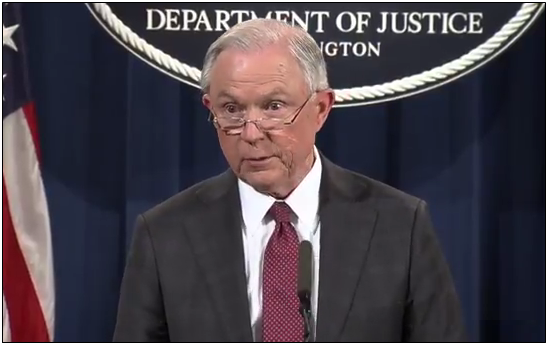By Natalia Castro
The Senate is planning a jailbreak, again. It has been over two years since Iowa Senator Chuck Grassley introduced the Sentencing Reform and Corrections Act of 2015, which aimed at reducing criminal justice costs by reducing the sentences of convicted criminals. Now, Grassley is reintroducing this measure in a renewed effort for comprehensive criminal justice reform. But just as this bill would have done years ago, this legislation will only put the American people in danger.
Grassley has introduced S. 1917, the Sentencing Reform and Corrections Act of 2017, which mirrors the 2015 versions effort to double down on the 2010 Fair Sentencing Act by allowing already convicted prisoners of drug trafficking to be released into the general public.
The Act reduces sentences for drug felonies both in the future and retroactively. It also limits the application of 10-year mandatory minimum laws by giving judges greater discretion over sentencing. As a Senator in 2015, our current Attorney General Jeff Sessions stood starkly opposed to this legislation, a call which he echoes today.
At the time, Sessions explained his fears in a press release, noting that, “Congress must examine the potential far-reaching consequences of what has occurred before going any further. It is counterintuitive to further weaken penalties for drug traffickers, especially heroin traffickers, and to enable the release of several thousand more incarcerated drug and gun felons… Professor Matt DeLisi of Iowa State University testified before the Judiciary Committee that ‘releasing 1 percent of the current [federal prison] population would result in approximately 32,850 additional murders, rapes, robberies, aggravated assaults, burglaries, thefts, auto thefts, and incidents of arson.’”
Both the 2015 bill and the current legislation would allow thousands of violent felons who committed assault to be eligible for early release. Those barred from early release are individuals who committed “serious violent felonies,” but a “serious violent felony” assault only means sentences that carried a maximum of 10 years or more. Since this law will be implemented retroactively, thousands of violent assaulters who attended prison for less than 10 years will still be eligible for release.
With a current recidivism rate of 76.6 percent within five years of release for all released prisoners, it is clear releasing these offenders, some of whom are violent, is not going to make America safer, no matter how much money it might save. A certain number of them will commit violent crimes, statistically speaking. People will die who otherwise would not have.
One notable difference between this year’s version of the bill and the previous one is the inclusion of a section on Fentanyl. Section 109 of the legislation reduces the mandatory minimum sentencing guidelines for possession of a “mixture or substance containing a detectable amount of heroin also contains a detectable amount of” Fentanyl to only 5 years.
Currently, the law dictates first offense possession of these substances to not less than 5 years. This new law effectively changes the minimum to a maximum for a drug that has been leading the opioid epidemic, killing thousands of Americans every year.
It is, therefore, no surprise that this week Attorney General Jeff Sessions reaffirmed his distaste for this legislation.
Sessions explained in a letter to Grassley this week, “We are in the midst of the largest drug crisis in our nation’s history… The murder rate skyrocketed by a combined 20 percent in 2015 and 2016… [S. 1917] weakens penalties for repeat, serious drug trafficker, including those who used a gun and those with significant criminal histories, and would reduce the sentences of and potentially allow for the early release of many dangerous felons in prison now, including heroin traffickers, firearms felons, and those who are members of violent drug cartels and gangs like MS-13.”
Sessions argued that the legislation would dramatically increase court backlogs and “collateral litigation over retroactive application of our laws could paralyze U.S. Attorney’s Offices for months if not years,” only making it more difficult to focus on criminals who are committing crimes.
The 2017 Sentencing and Corrections Act does not solve the problems of the criminal justice system; it will exacerbate them by reducing sentences and retroactively allowing violent criminals to re-enter society. Attorney General Jeff Sessions is leading the fight to restore law and order at the Department of Justice by removing illegal immigrants, prosecuting criminals, and combatting violence from drug trafficking and gangs; passing this legislation would be Congress undermining all of these goals.
Natalia Castro is a contributing editor at Americans for Limited Government.







